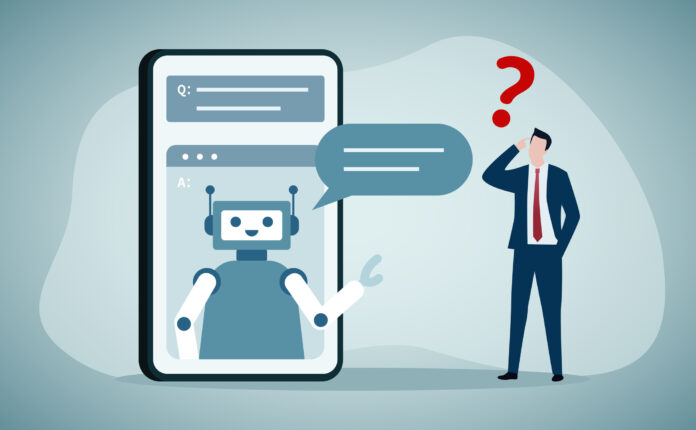
Traditionally, customer service has always been a realm governed by human operators, often fraught with limitations such as operating hours, response times, and the potential for human error. However, the advent of artificial intelligence, combined with natural language processing, has paved the way for chatbots and virtual assistants to take center stage in this arena. These digital entities, often equipped with the ability to learn and adapt, are rewriting the rules of customer engagement.
These intelligent systems operate 24/7, ceaselessly addressing customer inquiries regardless of the time of day or night. They possess the unique capability to handle multiple inquiries concurrently, ushering customers through the service journey with unparalleled speed and efficiency. Furthermore, these AI-driven entities are not merely reactive; they’re proactive. By harnessing advanced algorithms and data analysis, they can offer highly personalized interactions, learning from past customer engagements to tailor their responses and recommendations.
The cost-efficiency of implementing such AI-powered systems is a compelling factor for businesses. Not only can they significantly reduce operational costs, but they can also elevate service quality. The economic viability of these systems represents a fundamental shift, potentially allowing businesses to redirect their resources toward innovation, expansion, and enhancing their core products or services.
In a world where instant gratification and personalized experiences have become the norm, AI-driven chatbots and virtual assistants are poised to be the custodians of customer service excellence. They are rewriting the script, unburdening businesses from the shackles of traditional customer support limitations, and ushering in a new era where customers are met with constant availability, rapid responses, and personalized interactions.
The AI-Powered Revolution
AI-driven chatbots and virtual assistants are not merely tools for answering routine questions; they are the products of cutting-edge artificial intelligence and natural language processing technologies. They have been meticulously designed to understand customer inquiries and respond in a manner that mirrors human interaction, and they are available around the clock. These systems have the potential to dramatically alter the landscape of customer service in the following ways:
- Always-On Support: Perhaps one of the most striking features of AI-driven chatbots and virtual assistants is their unwavering availability. They provide 24/7 support, ensuring that customer inquiries are addressed regardless of the time zone or holiday.
- Swift Responses: Chatbots can handle multiple inquiries simultaneously, providing instant responses and reducing the need for customers to languish in long queues or wait for delayed email responses.
- Personalized Interactions: These intelligent systems employ advanced AI algorithms to comprehend customer preferences, offering personalized recommendations and responses based on previous interactions and data analysis.
- Cost-Efficiency: Businesses can reap the benefits of customer service automation, cutting costs associated with support staff while maintaining, if not enhancing, service quality.
Real-World Examples
Let’s embark on a journey through real-world instances where AI-driven chatbots and virtual assistants are positively impacting customer service:
- Zendesk’s Answer Bot: A prominent customer service software provider, Zendesk, offers the Answer Bot. This AI-driven solution employs natural language understanding to interpret and respond to customer inquiries. Often, it can resolve issues without human intervention, reducing response times and allowing customer service agents to focus on more complex tasks.
- IBM Watson Assistant: IBM Watson Assistant is a robust virtual agent, capable of interacting with customers on websites, mobile apps, and even through social media. A diverse array of industries, including retail, healthcare, and finance, utilizes this AI-powered assistant to provide instant support, thereby enhancing the customer experience.
- Tesla’s AI Voice Assistant: As of now, it remains a rumor, but a particularly intriguing one. The gossip mill suggests that Tesla, the trailblazing electric vehicle manufacturer, is discreetly implementing an AI-driven voice assistant for sales calls. If realized, this development could revolutionize sales interactions in the automotive industry. Imagine sales representatives being empowered by an AI voice assistant during meetings to provide instant information, answer questions, and personalize the sales experience for potential customers.
Future Opportunities
As artificial intelligence continues to advance, the future of customer service appears exceedingly promising. The integration of chatbots and virtual assistants is likely to expand across industries, offering more personalized and efficient customer interactions. Moreover, the fusion of AI-driven systems with other emerging technologies like augmented reality and the Internet of Things (IoT) holds the potential for even more sophisticated customer support solutions.
To visualize these future prospects, imagine the following 4 possibilities:
- Seamless Multichannel Support: AI-driven chatbots and virtual assistants will provide consistent support across a myriad of platforms and devices, ensuring that customers can access assistance at any time and from any place.
- Enhanced Proactive Support: With improved data analytics and predictive algorithms, these systems will proactively identify and address customer needs even before they reach out for assistance, elevating the customer service experience to a new level.
- Hyper-Personalization: Chatbots will delve even deeper into personalization, employing AI to anticipate customer preferences and tailor responses and recommendations to individual tastes and behaviors.
- Augmented Reality Integration: AI-driven systems will collaborate with augmented reality technology, allowing customers to receive visual, real-time support that guides them through complex tasks, repairs, or troubleshooting, whether for a piece of equipment, a piece of software, or an automobile.
AI-driven chatbots and virtual assistants are fundamentally altering the landscape of customer service. These systems offer the benefits of constant availability, rapid responses, personalization, and cost-effectiveness. While they have already




